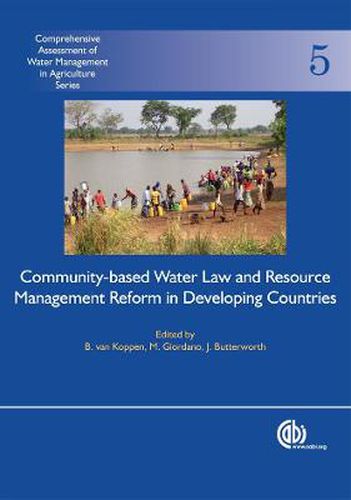Readings Newsletter
Become a Readings Member to make your shopping experience even easier.
Sign in or sign up for free!
You’re not far away from qualifying for FREE standard shipping within Australia
You’ve qualified for FREE standard shipping within Australia
The cart is loading…






The lack of sufficient access to clean water is a common problem faced by communities, efforts to alleviate poverty and gender inequality and improve economic growth in developing countries. While reforms have been implemented to manage water resources, these have taken little notice of how people use and manage their water and have had limited effect at the ground level. On the other hand, regulations developed within communities are livelihood-oriented and provide incentives for collective action but they can also be hierarchal, enforcing power and gender inequalities. This book shows how bringing together the strengths of community-based laws rooted in user participation and the formalized legal systems of the public sector, water management regimes will be more able to reach their goals.
$9.00 standard shipping within Australia
FREE standard shipping within Australia for orders over $100.00
Express & International shipping calculated at checkout
The lack of sufficient access to clean water is a common problem faced by communities, efforts to alleviate poverty and gender inequality and improve economic growth in developing countries. While reforms have been implemented to manage water resources, these have taken little notice of how people use and manage their water and have had limited effect at the ground level. On the other hand, regulations developed within communities are livelihood-oriented and provide incentives for collective action but they can also be hierarchal, enforcing power and gender inequalities. This book shows how bringing together the strengths of community-based laws rooted in user participation and the formalized legal systems of the public sector, water management regimes will be more able to reach their goals.